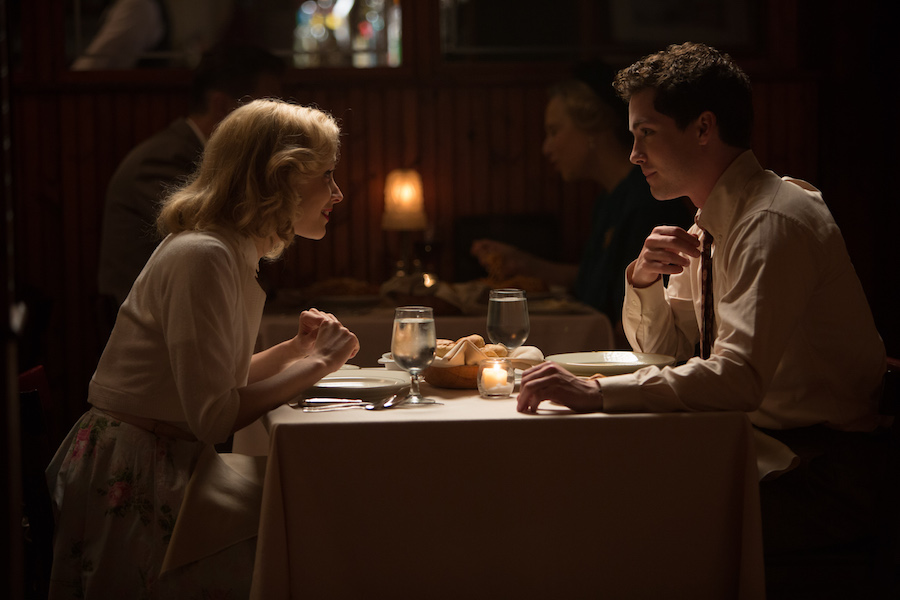‘Indignation’ Why would anyone adapt Philip Roth? It’s a fool’s errand, if not an act of arrogance. It’s not a question of content. Anyone hoping to turn a Roth tome into a film will have to chuck its most important component: that prose. Flowing run-on sentences of casual elegance, they lets us stew in the author’s singular (and singularly randy/grouchy/Jewish) worldview — direct pipelines into Roth’s psyche. Merely dramatizing them with actors and sets and the occasional sex act is the equivalent of reading a Wikipedia summary — and maybe being appalled by what they describe. “Indignation,” culled from his 2008 installment, is “only” the seventh Roth movie. (The eighth, Ewan McGregor’s stab at “American Pastoral,” arrives in October.) It’s not the one that “gets” it — that transports the writer’s specific tone and charm (and, sometimes, epic lack of charm) into cinema. But it is the one that finds its own voice while piggybacking off of his. RELATED: Interview: Sarah Gadon and Logan Lerman on the odd way they met on “Indignation” Too long stuck playing tabula rasas prone to gaping wonder, Logan Lerman finally asserts himself as Marcus, a young, Jewish New Jersey-ite circa the Korean War fed up with his paranoid, borderline right-wing butcher dad. He needs to fly far away; he settles on a college buried in Ohio. Marcus doesn’t seem to mind that he doesn’t fit in, despite repeatedly changing dorms due to pesky, casually anti-Semitic roommates. He briefly makes a connection, and her name is Olivia. Played by Sarah Gadon, she’s a perfect blonde mannequin on the outside. On the inside she’s roiling with prickly thoughts and bold tastes and a penchant for making the first (and second, and third) move. As ever with Roth, Olivia is part male fantasy, part sly interrogation of same. She’s even more alive onscreen, especially as embodied by Gadon, in the role that should belatedly make her an “It” girl. The actress steamrolls through her handful of scenes, reducing Marcus to a confused catatonic as she demands he pop back out of his shell. Marcus isn’t sure what to make of her, and is flummoxed as she slips in and out of his life. She’s fiercely intelligent yet she chose the school solely because it will beat her down, make a submissive ’50s American woman out of her. She’s too big, too complex for him and even for herself. When Olivia’s not around Marcus can be bold, too. The centerpiece is a 15-minute verbal tete-a-tete, lifted almost as is from the source, between Marcus and the crusty college dean (the playwright Tracy Letts, once again proving he should be in every movie). Initially the dean is worried Marcus isn’t fitting in, but their chat escalates into, among other things, a spar over theology and the veracity of Bertrand Russell. The movie never gets better, before or after, but it’s never less than confident. The writer-director is James Schamus, Ang Lee’s frequent partner-in-crime, whose studied, ostentatiously intelligent work tends to be described/written off as “novelistic.” He retains Roth’s snaky structure, minus one key bit of bookending that would be too eccentric for a film that’s both stuffy and alive. Turns out you don’t always need Roth’s voice to make a decent Roth movie.
Director: James Schamus
Stars: Logan Lerman, Sarah Gadon
Rating: R
3 (out of 5) Globes
‘Indignation’ is the rare Philip Roth movie that works on its own

Roadside Attractions
Follow Matt Prigge on Twitter @mattprigge


















